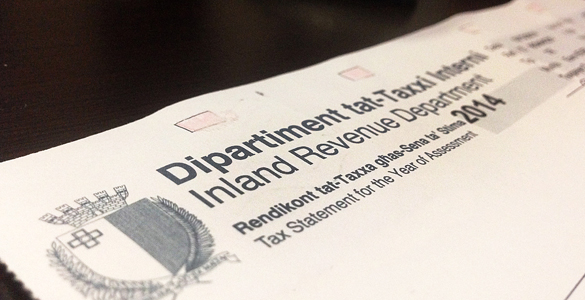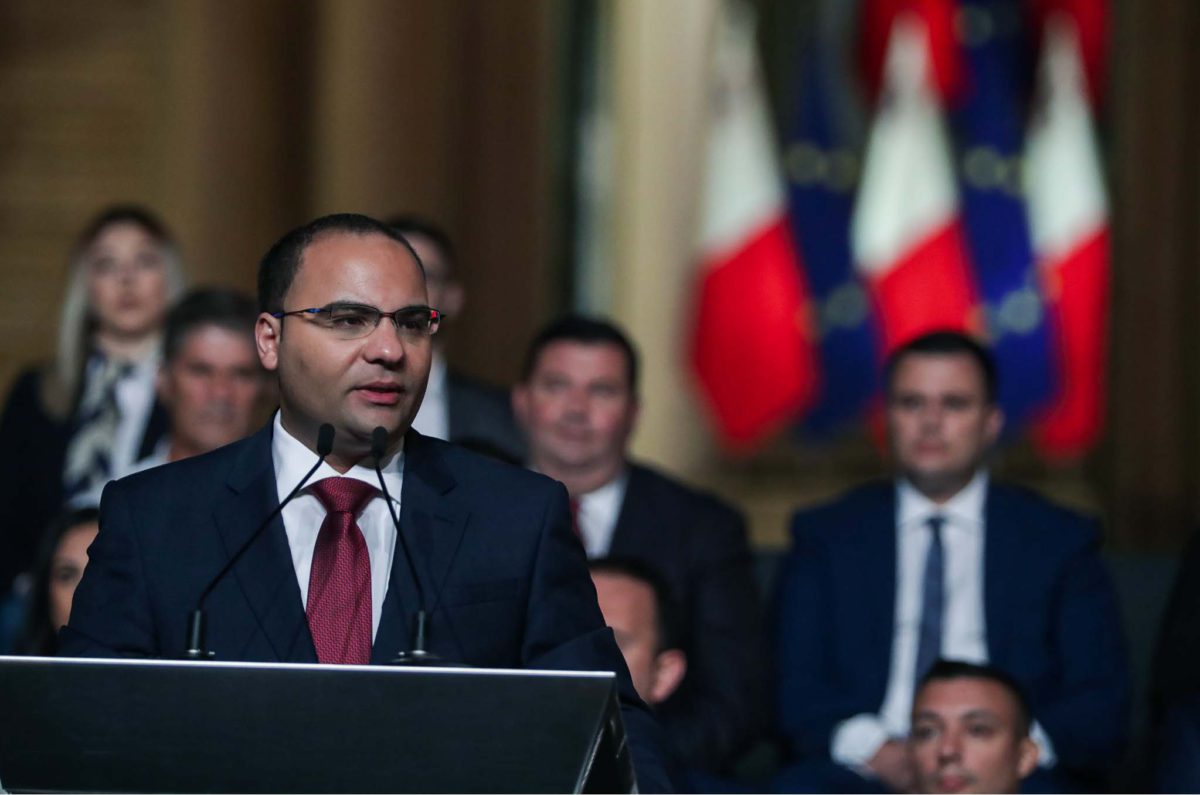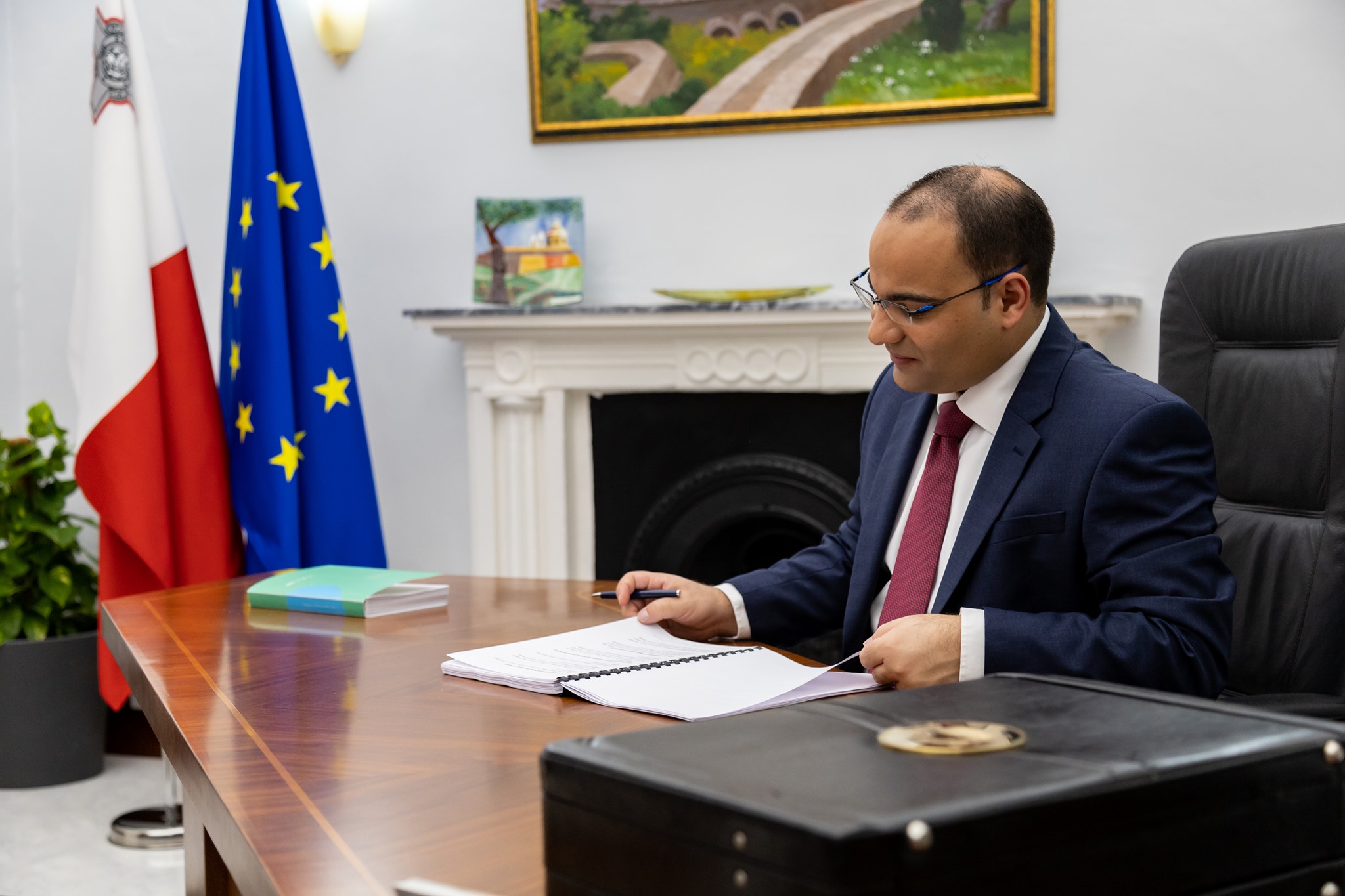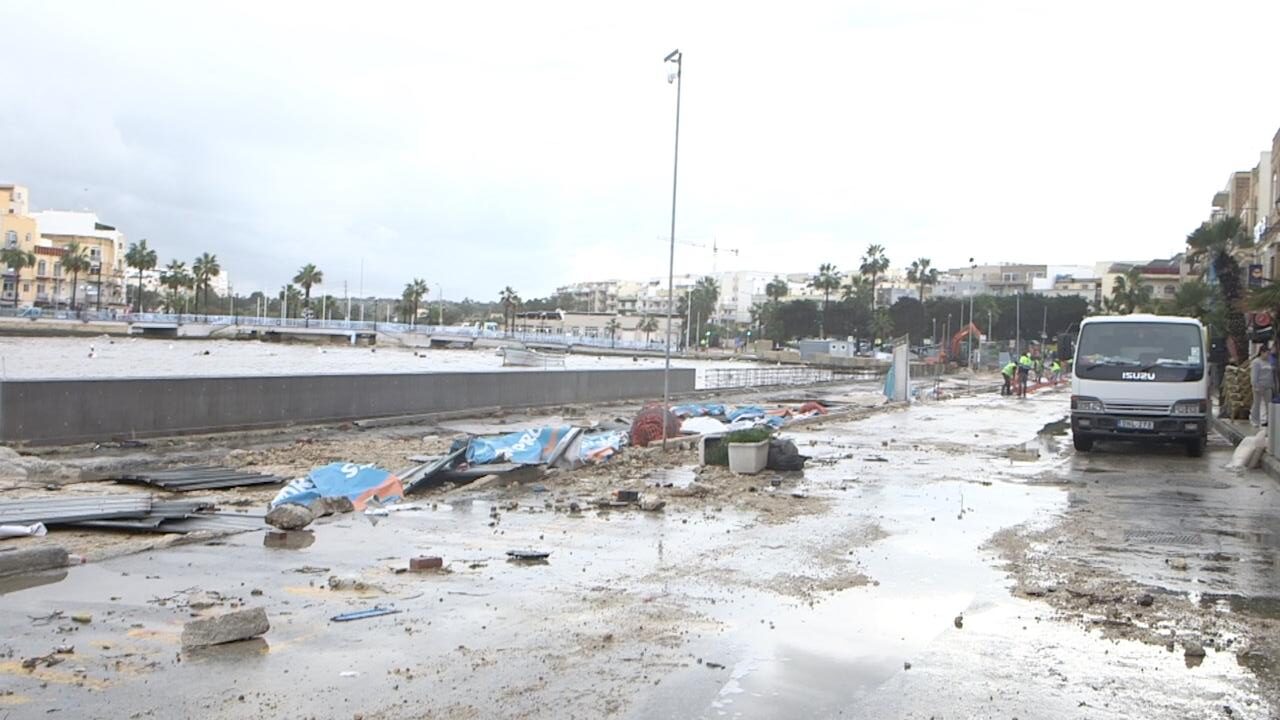Just one day after Finance & Employment Minister Clyde Caruana announced on Monday that there would be a substantial hike in the interest rate on unpaid income tax and VAT balances, “a lot of businesspeople” visited the tax department to draw up their tax agreements, the Minister revealed to BusinessNow.mt.

On Monday, as part of the Budget 2022 speech, Dr Caruana announced that the interest rate on unpaid income tax and unpaid VAT balances would rise to 7.2 per cent annually as of 1st June 2022.
Minister Caruana has repeatedly said over the past months that the Government is seeking to clamp down on tax evasion, with this latest measure acting as a catalyst for many within the business community to reach out to the tax department and settle an agreement on unpaid balances.
“People have to pay what they owe. It is not something that people like to do given that it is another shift in mentality, but it has to be done,” Dr Caruana says in a wide-ranging interview with BusinessNow.mt touching upon several issues impacting the local business community.
Financial Services
An industry facing uncertainty, and, according to the Institute for Financial Service Practitioners President, Tonio Zarb, is highly underestimated in terms of size and scope, Dr Caruana reveals that an official vision or policy is going to be drafted.
He says that a council made up of around 12 people representing different aspects of the industry, which he playfully calls “the wise men of the industry”, are drawing up a vision for the sector in the form of a report, which should be ready by the end of the year.
Pro-business vs Pro-people
Against the backdrop of a discussion on the future of financial services, the decision to clamp down on tax evasion and fears across the business community about regulatory and compliance burdens having gone from one extreme to the next, Dr Caruana confirms that the tone at the top echelons of the Labour Government has shifted from one that was widely perceived to be more ‘pro-business’, to one that is more people-focused.

“And is this a bad thing?” asks the Finance Minister, rhetorically.
“I think we are in sync with what the people are saying”, the Minister says, adding that Budget measures included to increase the workforce, or the tweaking of in-work benefits that allows individuals to work more hours, are incentives that will facilitate both economic growth and economic development.
Indeed, Budget 2022 has been hailed as being “socially courageous” by workers unions, employers’ and business interest groups alike, however, the latter two categories have expressed concern about a lack of a medium or long-term vision, the sustainability of Malta’s public finances and that the Budget did not delve enough into how Malta plans to get off the Financial Action Task Force’s (FATF) grey list.
From lax regulation to overdrive?
One fear that has been expressed prior to any discussion of the Budget, is that since the idea that Malta could be placed under the FATF’s increased monitoring, the so-called grey list, came to fruition, Government has gone from one extreme to the other in terms of regulatory and compliance obligations.
Indeed, fines and penalties at the Financial Intelligence Analysis Unit (FIAU) have steadily gone up in recent years, with €4.6 million in penalties or fines being imposed in 2020, €3.9 million in 2019 and €546,200 in 2018.

Furthermore, at Monday night’s press conference following the Budget 2022 announcement, Prime Minister Robert Abela confirmed the FIAU has been given unprecedented resources.
Asked about concerns being expressed about over-regulation, especially at a time when doing business has become so challenging due to staff shortages and rising prices, Dr Caruana said such concerns are normal “when there is a change in culture”.
He likened it to when a barrel full of water is shaken, creating waves.
“Until things calm down again, it takes time. It’s the same thing we are seeing over here.
“There is a seismic shift in culture and mentality. The number of legislative changes that were enacted last year was quite significant, and this is why the business community, of course, is feeling the burden of all this. A lot has happened in a very short space of time”.
Malta, the FATF and the grey list
On this front, Dr Caruana cautiously says “hopefully, by next year, we will be able to register some progress”.
“We are doing what we have to do. But everybody has to wait a little bit”.
Dr Caruana remarks that it is possibly the first time in Malta’s history where the private sector is out of breath from the pace of change enacted by Government, a change that has steadily ramped up by an international clampdown on global corporate structures and on the financial services industry, and was further propelled by the grey list.

“For the first time, the private sector is struggling to keep up with the pace of change coming from the Government. But, we have to give time to time,” he says.
Dr Caruana adds that he is aware that the situation “is not pleasant” and that banks in particular “had some difficulty in adjusting themselves to this new reality”.
With the increased monitoring, money transfers in and out of the country have become more problematic. International financial institutions are requiring greater regulatory and compliance checks, while some may choose not to do business with Malta from the perceived risk alone.
Acknowledging such issues, Dr Caruana says he is “aware,” and goes on to recount the difficulties being faced by the business community: the opening and closing of bank accounts, the “rigorous checks about certain balances” and the increased scrutiny.
He says the Malta Financial Services Authority (MFSA) and the FIAU are working on reports, advising banks and consulting each other to bridge any grey areas in compliance and regulatory requests, which Dr Caruana says have been a “nuisance to certain businesses”.
Onto criticism against the Government about keeping the business community in the dark as to the efforts being undertaken to get off the grey list, Dr Caruana says he does not think such work “requires promotion”.
“What matters is the end result, because I would say that there are more cons than pros if we had to publicise all the work being carried out.
“I know that everybody is anxious for more information and when we are going to get out of this, but it does not work like that. The commitment we can give is that we are working hard to make sure that we manage to get right the two recommendations made by the FATF”.
Nearly half of Maltese non-homeowners doubt they’ll ever buy as prices continue to rise
Around 34 per cent of Maltese respondents who do not own their home believe they will never be able to ...
‘People bring their best when they feel supported and valued’ – CLA Malta’s Dorianne Campbell
Dorianne Campbell on going the extra mile to create an environment that treats employees as the organisation’s most valued assets
Planning Authority proposes fast-track rebuilds, but draws a hard line on abuse
The PA is clear about the fact that this is about restoring what was lawfully there, nothing more






